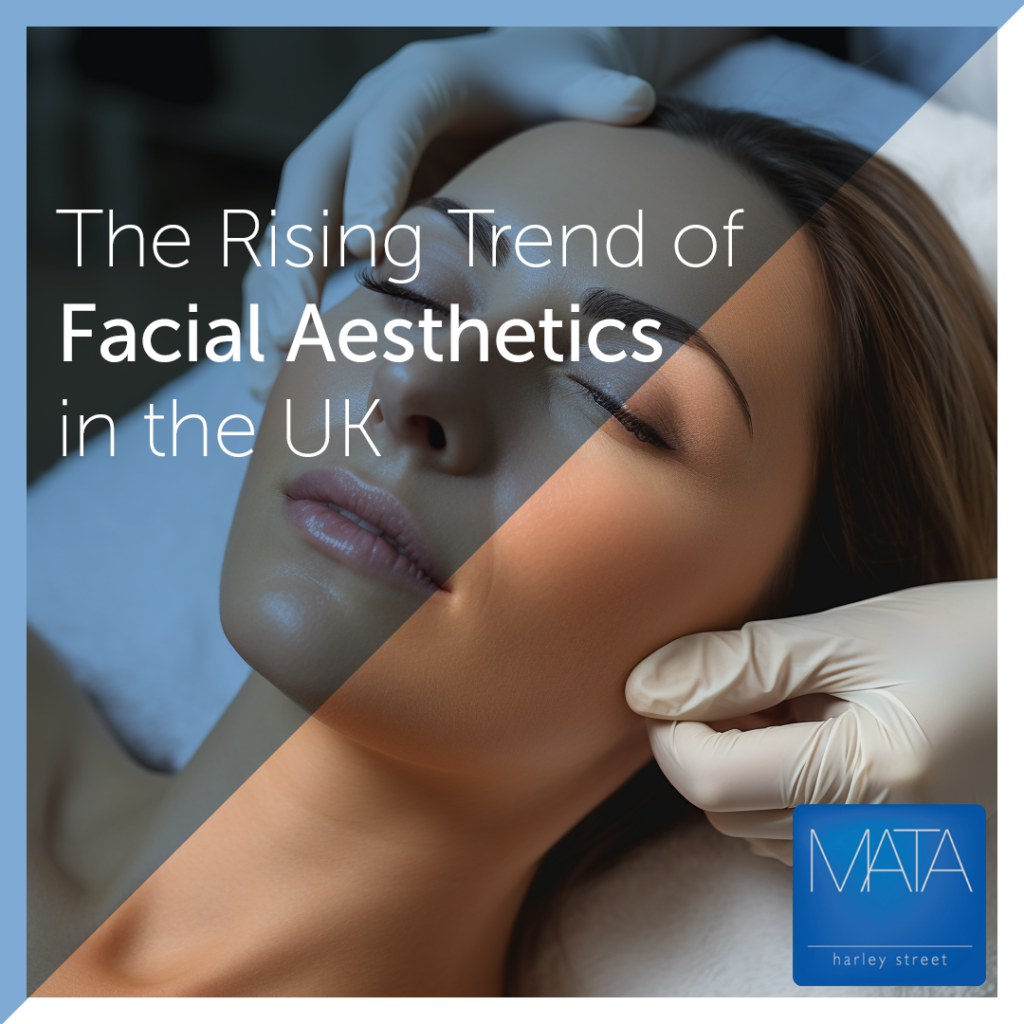
Across the UK, the demand for facial aesthetics has surged dramatically in recent years (Furness, 2022). This presents a burgeoning opportunity for National Health Service (NHS) professionals, such as nurses, doctors, and dentists, to diversify their career paths and tap into this ever-expanding sector.
Indeed, who could be better suited to meet this demand than our highly trained and dedicated NHS professionals? It’s a natural transition, bringing in valuable medical expertise to a field that greatly benefits from it. With the right training and support, this could be a transformative career move.
We at Medical and Aesthetics Training Academy (MATA) are pioneers in the industry and creators of the acclaimed Level 7 Diploma in Facial Aesthetics, are perfectly positioned to provide the necessary training for this career transition. Having co-created the Level 7 Certificate in Facial Aesthetics and offering training in various UK cities, MATA strives to improve safety in facial aesthetics through high-quality training, available exclusively to medical professionals.
Let’s explore the rise in facial aesthetics, the opportunities this presents for NHS professionals, and how MATA can be instrumental in this transition.
The Rise in Facial Aesthetics
In a society where Instagram filters and high-definition video calls are becoming the norm, the demand for aesthetic treatments is at an all-time high (Savage, 2021). The UK market has seen a particularly significant increase, with non-surgical treatments like Botox and dermal fillers becoming increasingly popular. This growth is expected to continue, with the facial aesthetics market predicted to reach £3.6 billion by 2025 (MarketsandMarkets, 2020).
The reasons behind this are multifaceted. Advances in technology, social media influence, a growing ageing population, and the quest for ‘perfection’ are key contributors to this trend (Savage, 2021).
Opportunities for NHS Professionals
For NHS professionals, the aesthetics industry provides an opportunity to leverage their existing skills in a new, lucrative way. Diversifying into aesthetics can add an additional revenue stream, while still maintaining a role within the NHS. The flexible working hours associated with aesthetics are also appealing, allowing for a more manageable work-life balance.
A career in aesthetics is not merely about increasing income. It’s about using your skills to help people feel better about themselves and increase their confidence. As a medical professional, you already possess the interpersonal skills and medical knowledge that can make a real difference in this field.
Why Train with MATA?
Training with MATA ensures you will receive the highest quality of education in facial aesthetics, delivered by a plastic surgeon led team of qualified medical professionals. With a commitment to patient safety, you can be confident that MATA’s training will equip you with the knowledge and skills necessary to provide safe, effective treatments.
With MATA, you’re not just training – you’re joining a community of professionals who are leading the way in aesthetics. Training is available in London, Manchester, Leeds, Cardiff, and Glasgow, providing nationwide accessibility.
By the end of your training, you will hold a Level 7 Diploma in Facial Aesthetics, a qualification that resonates with professionalism, expertise, and safety in the industry.
It’s time to broaden your career horizons and enter the dynamic world of facial aesthetics. MATA is here to guide you through this exciting journey.
FAQ
Facial aesthetics refers to non-surgical treatments that aim to rejuvenate, enhance, and balance facial features. These treatments include Botox, dermal fillers, chemical peels, and laser therapy.
The demand for facial aesthetics is rising due to societal factors such as social media influence, technology advances and an ageing population.
For NHS professionals, aesthetics offers an opportunity to apply their medical skills in a lucrative field, add a supplementary income stream, and enjoy more flexible working hours.
MATA is a leading training academy specialising in facial aesthetics for medical professionals. They offer courses led by qualified plastic surgeons and are the creators of the Level 7 Diploma in Facial Aesthetics.
MATA’s training includes theoretical study, practical hands-on sessions, and mentorship. The curriculum covers a broad range of non-surgical treatments such as Botox, dermal fillers, and chemical peels.
After training with MATA, you’ll receive the Level 7 Diploma in Facial Aesthetics, a highly regarded qualification in the industry that emphasises safety, professionalism, and expertise.
Yes, many professionals choose to offer aesthetic treatments alongside their NHS role, benefiting from the additional income and flexible working hours aesthetics provides.
Yes, by training with MATA, you join a community of professionals who are leading the way in the aesthetics industry.
You can get started by exploring the available courses. Our friendly team is on hand to answer any queries and guide you through the enrolment process.

